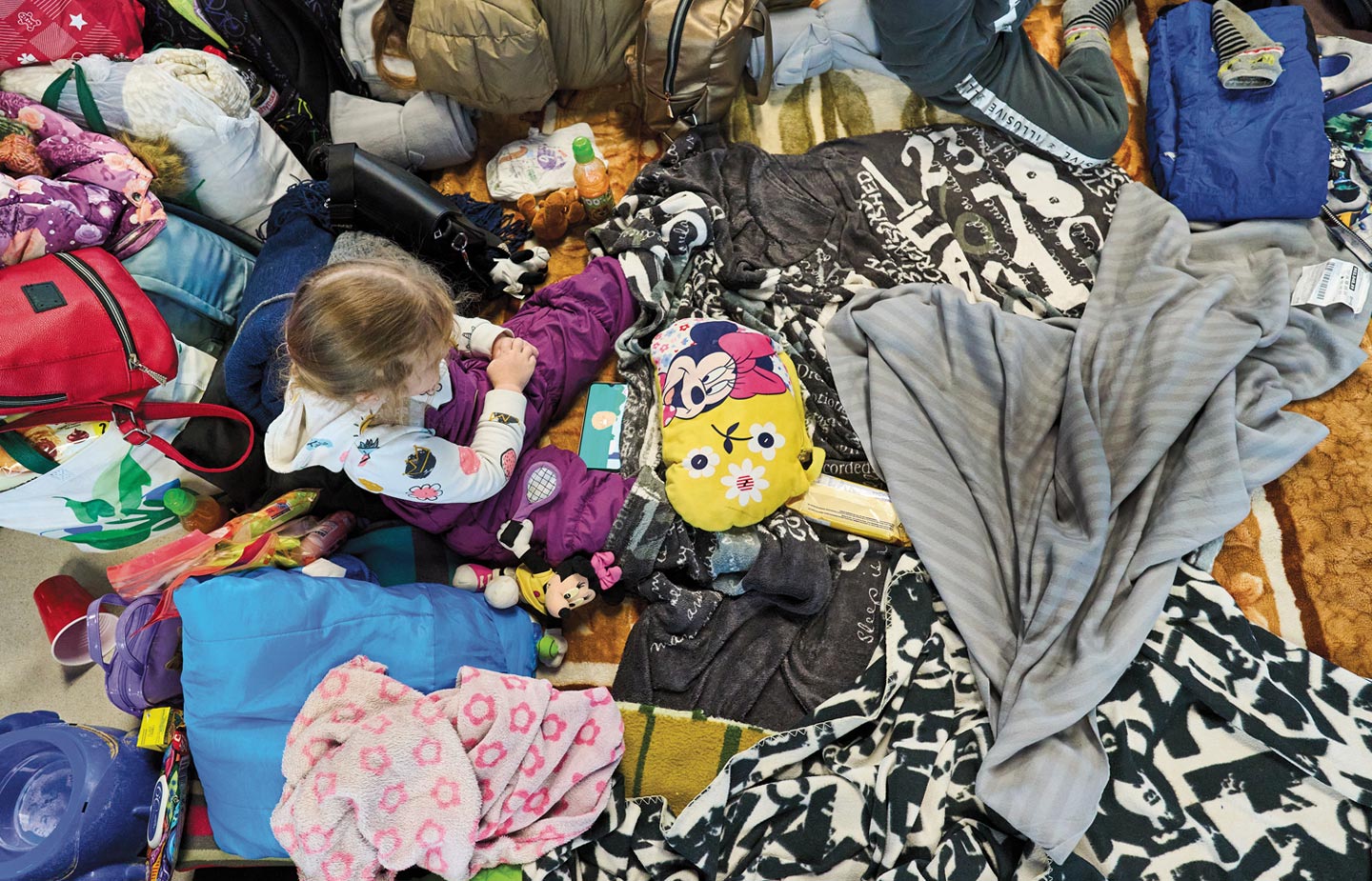The War in Ukraine
Eugene B. Kogan ’03, who conducts research and teaches about power dynamics in negotiation and mediation at Harvard, discusses the ways in which Russia’s war in Ukraine might end. Kogan was the inaugural research and executive director of Harvard’s American Secretaries of State Project.
QThe U.S. and NATO implemented unprecedented sanctions against Russia, yet the war continues. Europe is making plans to wean itself off Russian energy. How isolated and economically depressed does Russia need to become before Putin no longer thinks the war is worth the cost, or does such a threshold not exist for Putin?
A: This zeroes in on what can be called “societal elasticity,” the ability of a society to withstand pressure. I expect the Western societies (higher elasticity) to give in earlier than the Russian society (lower elasticity). The question is how much punishment the different societies and economies—Russian and global (Western)—can accept without pressuring their respective leaders to change the policies that have brought on the pressure.
On the one hand, how much do the Russian people have to suffer from the sanctions and isolation before their displeasure with the war forces the decision-makers in Moscow to change course? Given the coercive grip of the Russian government over the society, I do not expect that we will soon see public protests on the kind of massive scale that would convince the Kremlin to rethink its policy. Likewise, the electoral accountability mechanism is virtually nonexistent in Russia, thus removing the ballot box as a lever for the public to influence Moscow’s Ukraine policy. On the other hand, how much inconvenience—for example, through rising food and gas prices—can the Western societies withstand before voting for policies that would adjust the punitive actions currently imposed against Russia?
Q: Russia has not fared well in the war. Thousands of conscripts have died, along with many top-ranking generals. Yet, Russia has the ability to, as it did in Mariupol, turn Ukrainian cities into rubble. Other than an attack on NATO territory or a nuclear/chemical attack, are there moral redlines that might draw the U.S. into direct military conflict with Russia?
A: For a redline “gold standard,” look at President John F. Kennedy’s speech on Oct. 22, 1962, during the Cuban Missile Crisis, which is the subject of my ongoing research and writing at Harvard Business School. Seeking to prevent the Soviet Union from using the missiles it secretly stationed in Cuba, Kennedy stated: “The United States will regard any nuclear missile launched from Cuba against any nation in the Western Hemisphere as an attack by the Soviet Union on the United States, requiring a full retaliatory response upon the Soviet Union.” Taking this definition as a baseline, a military invasion of, or attack on, NATO territory is a clear redline, as President Joe Biden has reiterated with his pledge to “defend every inch” of the alliance. Currently, there are no equally forceful deterrent threats against the use of weapons of mass destruction.
In his recent New York Times op-ed, the President stated “Any use of nuclear weapons in this conflict on any scale would be completely unacceptable to us as well as the rest of the world and would entail severe consequences.” This statement is not a redline because it lacks the credible threat that is essential for deterrence. This is a mistake for two reasons. First, strategically, the use of such weapons must be prevented, and the way to do so is to deter their use by drawing unambiguous redlines. Ambiguity—useful though it may be for other purposes—corrodes redlines. Second, morally, the use of such weapons has no place in organized intercourse (including war) among civilized nations.



